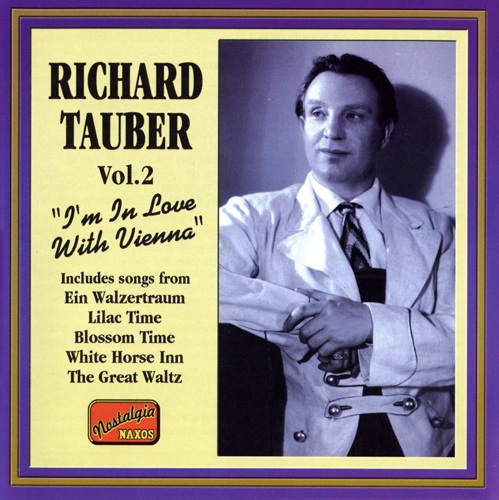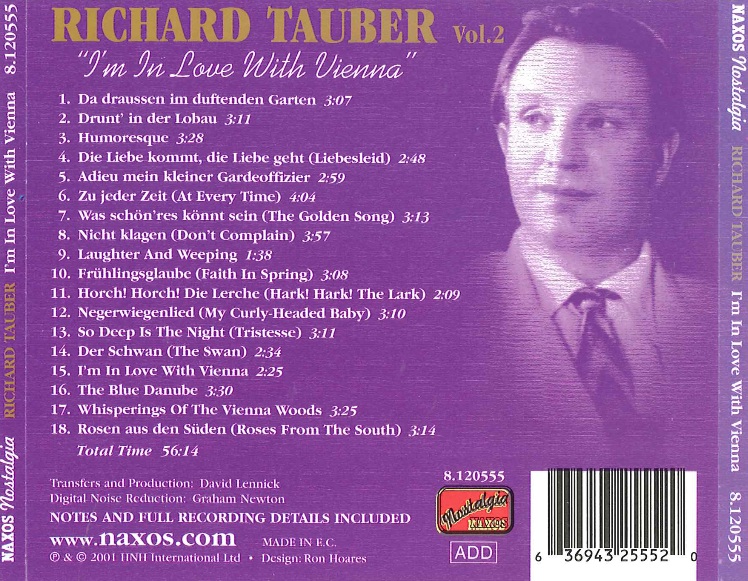Logowanie
Dlaczego wszystkjie inne nie brzmią tak jak te?
Chai Lang, Fan Tao, Broadcasting Chinese Orchestra
Illusive Butterfly
Butterly - motyl - to sekret i tajemnica muzyki chińskiej.
SpeakersCorner - OSTATNIE!!!!
RAVEL, DEBUSSY, Paul Paray, Detroit Symphony Orchestra
Prelude a l'Apres-midi d'un faune / Petite Suite / Valses nobles et sentimentales / Le Tombeau de Couperin
Samozapłon gwarantowany - Himalaje sztuki audiofilskiej
PROKOFIEV, Stanislaw Skrowaczewski, Minneapolis Symphony Orchestra
Romeo and Juliet
Stanisław Skrowaczewski,
✟ 22-02-2017
BARTOK, Antal Dorati, Philharmonia Hungarica
Dance Suite / Two Portraits / Two Excerpts From 'Mikrokosmos'
Samozapłon gwarantowany - Himalaje sztuki audiofilskiej
ENESCU, LISZT, Antal Dorati, The London Symphony Orchestra
Two Roumanian Rhapsodies / Hungarian Rhapsody Nos. 2 & 3
Samozapłon gwarantowany - Himalaje sztuki audiofilskiej
Winylowy niezbędnik
ClearAudio
Cartridge Alignment Gauge - uniwersalny przyrząd do ustawiania geometrii wkładki i ramienia
Jedyny na rynku, tak wszechstronny i właściwy do każdego typu gramofonu!
ClearAudio
Harmo-nicer - nie tylko mata gramofonowa
Najlepsze rozwiązania leżą tuż obok
IDEALNA MATA ANTYPOŚLIZGOWA I ANTYWIBRACYJNA.
Wzorcowe
Carmen Gomes
Celebrating the art and spirit of music - vol. 5 - Reference Songs
- CHCECIE TO WIERZCIE, CHCECIE - NIE WIERZCIE, ALE TO NIE JEST ZŁUDZENIE!!!
Petra Rosa, Eddie C.
Celebrating the art and spirit of music - vol. 3 - Pure
warm sophisticated voice...
SAMPLER - STS DIGITAL, Gregor Hamilton
Celebrating the art and spirit of music - vol. 2 - Love songs from Gregor Hamilton
...jak opanować serca bicie?...
SAMPLER - STS DIGITAL
Celebrating the art and spirit of music - vol. 1 - Leonardo Amuedo
Największy romans sopranu z głębokim basem... wiosennym
Lils Mackintosh
Celebrating the art and spirit of music - vol. 4 - A Tribute to Billie Holiday
Uczennica godna swej Mistrzyni
Richard Tauber
I'm In Love With Vienna - Vol.2

>>> MP3 <<< 6. Schubert - Zu jeder Zeit (arr. of Piano Sonata No. 18 in G major, D. 894: III. Trio): Zu jeder Zeit (arr. of Schubert's Piano Sonata in G major, D. 894: III. Trio) 4:07 7. Was schön'res könnt sein (The Golden Song) 3:16 8. Nicht klagen (Don't Complain) 4:00 9. Lachen und Weinen, Op. 59, No. 4, D. 777: Laughter and Weeping (Lachen und Weinen), D. 777 1:41 10. Fruhlingsglaube, D. 686 3:11 11. Standchen, D. 889, "Hark, hark, the lark" ("Horch, horch! die Lerch"): Horch! Horch! Die Lerche (Hark! Hark! The Lark) 2:12 12. Negerwiegenlied (My Curly-Headed Baby) 3:14 13. So Deep is the Night, "Tristesse" (arr. of Chopin's Etude No. 3 in E major, Op. 10, No. 3) 3:14 14. Der Schwan (The Swan): Carnival Of The Animals: XIII. Der Schwan (Le Cygne, The Swan) 2:38 15. I'm In Love With Vienna 2:28 16. The Blue Danube 3:33 17. Whisperings Of The Vienna Woods 3:28 18. Rosen aus den Süden (Roses From The South) 3:14
- Richard Tauber - tenor
>>> Większa okładka A <<< >>> Większa okładka B <<< " The gramophone was already a well-established medium before Caruso died in 1921, with both electrical recording and the talkies but a few years ahead. In gramophonic terms, the three best-selling, big-name tenors who between the World Wars most readily fulfilled the common man's idea of 'romance' were Gigli, McCormack and Tauber - but it was Tauber who won the laurel for operetta, musical comedy and film repertoire. As far as their individual screen-records go, McCormack made only two films (the first, an enthusiastic effort in black and white, in 1929, the second - unwillingly - in technicolor, in 1937); Gigli made a good handful, both in English and Italian but he, stout like Tauber, was no matinee idol and resorted to expressive rather than physical attributes to grab his audience's attention. Endowed with a voice of opulent middle resonance but no great tenorial top extension, Tauber was a 'romantic tenor' through a combination of personal charm and a highly individual style of delivery. Via a rare kind of vocal alchemy, the masterly musicianship of this peerless Mozart singer left its mark on all other kinds of music he attempted, which were many and contrasting, but anchored in the traditional style of Viennese operetta perpetuated by the Hungarian-born Franz Lehar (1870-1948). Indeed, the tenor's outstanding successes in several works by this composer, starting in 1922 with Frasquita, paved the way for a more broadly-based commercial exploitation on disc of virtually anything generically Viennese. His records, which sold in thousands world-wide, proclaimed him as a living synonym for Vienna. Tauber was inextricably linked with Vienna largely by accident of birth, and albeit he was actually born in the industrial town of Linz - a good 100 miles by road from the Austrian capital - on May 16, 1891, Tauber (ne Ernst Seiffert), the artistic influence of Vienna was reflected in his attitudes and outlook on life. As one may readily detect from his charming set of recordings of Austrian folk-songs ('Das deutsche Volkslied') he was by nature filled with the uninhibited joie-de-vivre and elegant simplicity which one associates with the Viennese Fritz Kreisler (1875-1962). His father was an actor, his mother a professional soprano and his maternal grandfather a theatrical director, too, so all in all he was a born performer. Tauber studied music at the Hochschen Konservatorium in Frankfurt, originally intending to become a conductor until his voice teacher, the tenor Karl Beines, persuaded him that he had real potential to sing professionally. Following a successful debut at Chemnitz as Tamino in Zauberflote in March 1913, Richard was a principal tenor with the Dresden Opera from 1915 to 1922 and made guest appearances from 1919 in Berlin other major European venues, including Vienna. Contracted to the Vienna Staatsoper from 1922 and to Berlin from 1925 until 1932, he had by 1930 already made his London debut and made a concert tour of the USA during 1931. Beginning with the waltz-song from Ein Waltzertraum, our programme presents a cross-section of the best of Tauber in Viennese vein. First produced in Vienna in 1907, this best-remembered work of the Vienna-born Oscar Nathan Straus (1870-1954), one of the major twentieth century Viennese operetta composers, albeit a virtual failure in London, had already clocked up its 1,000th performance during its 1927 Viennese revival. Next, comes Drunt' in der Lobau ("Down there in the Lobau" where the Danube embraces dreaming Vienna"), a charming trifle by Heinrich Strecker and Beda Eckhardt. Subtitled 'Famous Viennese Song', in this Volkslieder-style fakery Tauber uses his poised middle-range mezza voce to great effect, as he later does in some other vocal arrangements: Humoresque ("Eine kleine Fruhlingsweise") on No.7 of 'Eight Humoresques for Piano', Opus 101 (1894), by Antonin Dvořák (1841-1904), Negerwiegenlied (a German version of "My Curly-Headed Baby", a song of 1926 by the Australian pianist, composer and critic George H. Clutsam, 1866-1951) and Der Schwann (No.13 of the posthumously premiered orchestral fantasy Carnival des Animaux (1922), by Camille Saint-Saens, 1835-1921). Next, after Die Liebe kommt, die Liebe geht (a vocal version by the long-term Theater an der Wien operetta producers Hubert (1882-1959) and Ernst (1893-1963) Marischka of "Liebesleid" - originally a Kreisler violin solo which found its way into his 1932 opera Sissy), there follows a group of items from Vienna-inspired shows and films. The work of Graz-born Robert Elisabeth Stolz (1880-1975) for the Viennese operetta stage spanned the years 1901 to 1969. First aired in the films Das Lied Ist Aus (1930) and Liebeskommando (1931), his Marsch Adieu, mein kleiner Gardeoffizier was more famously interpolated into Ralph Benatzky's Im weissen Rossl ('White Horse Inn', 1930). Das Dreimadlerhaus ('House of the Three Medlars'), better known to English audiences as Lilac Time, a quasi-biography of Schubert by the Austro-Hungarian Heinrich Berte (1857-1924) was first produced in Vienna in 1916. First filmed (on silent) in Germany in the following year and revived on the stage (in French) in Paris in 1928 and 1931, it was heard again its original text in 1933, when Tauber partnered the coloratura soprano Irene Eisinger (1903-1994). The following year, Tauber also appeared in a British film version entitled Blossom Time (first coined as a title in the 1921 US version by Sigmund Romberg, this was actually based on the 1923 London adaptation of Dreimadlerhaus which Clutsam, with Adrian Ross, originally dubbed Lilac Time). After I'm In Love With Vienna, a piece of Dimitri Tiomkin-Oscar Hammerstein II schmaltz concocted for Miliza Korjus in the Oscar-winning 1937 MGM film-musical The Great Waltz, our Viennese potpourri concludes with vocal adaptations of world-renowned Viennese waltzes from the pen of the 'Waltz King' Johann Strauss II (1825-1899). The first of these, The Blue Danube (An der schonen blauen Donau, 1867), the most famous of the 400-odd waltzes, realised for Tauber by the English pianist, conductor and songwriter Henry Geehl, (1881-1961) is followed by Whisperings Of The Vienna Woods (Geschichten aus dem Wienerwald, 1868), an English translation of the arrangement by operetta arranger-turned-film-scorer Erich Wolfgang Korngold (1897-1957) which, in collaboration with Erich Marischka, Julius Bittner and others, first introduced in Waltzer Aus Wien, in 1930, at the Wiener Stadttheater and Rosen aus dem Suden (Roses From The South, 1878).ę Peter Dempsey, 2001
























